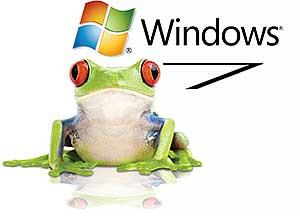February 2015: Windows 7 users, welcome to the “extended support” phase! The “mainstream support” phase has ended and now … what?
Don’t panic — this is not the same as the Windows XP end-of-life situation last year. You have until 2020 to panic. Meanwhile, here’s what you need to know about the differences between mainstream support and extended support and how Windows lifecycles may affect your computing life:
Microsoft can’t realistically support an operating system (OS) forever. Technology improves and companies look forward, not backward — it’s just part of the normal lifecycle for Windows and every other tech company.
Microsoft policy offers customers mainstream support for at least five years after the release of an OS or for two years after the successor product is released, whichever is longer. Extended support takes over once mainstream support ends and continues for two years after the SECOND successor product is released. See the lifecycle policy FAQ for details.
What you won’t be getting anymore:
- Any new Windows 7 features
- Improvements to the OS
- Free help when you call Microsoft
What you’ll keep getting:
- Extended support until January 14, 2020
- Security-related Hotfixes
- An excellent OS that you know how to use
The process started in October 2013 when Microsoft stopped selling standalone Windows 7 OS software. Then in October 2014 it stopped manufacturing consumer Windows 7 PCs.
However, it’s a different story for businesses. They can still buy Windows 7 Professional PCs and Windows 7 Professional licenses — Microsoft says it will give a one-year warning before it stops offering each of these. Businesses can also buy Windows 7 Professional extended Hotfix support plans for non-security issues while individual users cannot.
While Windows 7 is still a perfectly good choice and will continue to be so for quite a while (seriously, don’t panic), you may want to voluntarily jump ship when Windows 10 is released. Check out this side-by-side comparison, which also includes Mac and Linux.
| You may also be interested in: |

